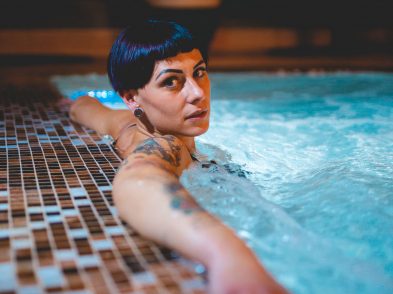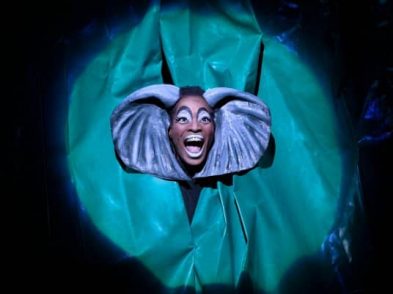The Opera Barga Festival was founded in 1967 by my parents, Peter Hunt and Gillian Armitage, who had worked for many years on the English and Scottish rep theatre scene. Peter was an actor (often resting as far as I know) while my mother was a busy set designer. They wanted a change of scene and shipped the family to Barga in 1963, where the festival continues to this day (see box).
There, Peter and Gillian discovered the Teatro dei Differenti, which was being used purely for New Year’s Eve and student balls. It had wooden chairs, a rickety fly gallery and a fascinating salt-water dimmer system that worked by varying the concentration of salt in water. They came up with the original idea that a student opera festival was the way forward in the country of il bel canto, and they contacted Peter Gellhorn, who ran the Glyndebourne Choir and the BBC Singers. He became the festival’s first musical director, bringing with him an array of singers from England, while Larry Malfatti, an American of Tuscan descent, provided connections with music schools in Cincinnati and Philadelphia.
In 1967, the first festival program featured scenes from Così fan tutte, Rigoletto and Fidelio, while the following year saw the first full opera production of Donizetti’s Lo speziale. Over the next 10 years, the festival grew exponentially. It was no longer open to singers alone, and training was provided to virtually all theatrical professions. Funding improved and trainees were handpicked at auditions or interviews held in Italy and England. With swelling numbers of participants, the festival presented at least three productions each year: a baroque work, a modern or contemporary opera, and one more popular title such as a work by Puccini or Rossini. Among the festival’s most distinctive features was that it presented works by famous composers that had never been performed in modern times.
The success story had an abrupt end in 1982, when the theatre closed for restoration and remained so for the next 16 years. The festival moved to outside venues in Barga until 1989, when the relationship with the council foundered, and my mother set up the Associazione Culturale Opera Barga. In 1994, the festival returned to Barga, in the hope that the theatre would re-open shortly, but another four years passed by and Gillian, unfortunately, was no longer with us to witness it.
After my mother’s death, I took over, with my brother Benjamin, as I felt I owed it to her to ensure that the festival did not close with the theatre’s re-opening so imminent. Three years later, with the help of the musical director and senior Christie’s musical manuscript expert, Massimo Fino, as well as Giancarlo Morganti, at last it seemed possible to revive the festival.
This year’s Opera Barga Festival will get under way on July 5 with a tribute concert for Bruno Maderna and Luciano Berio, two of the most prominent twentieth-century Italian composers, in a co-production with Contempoartensemble of Florence. It will be followed by a series of chamber music concerts, masterminded by Simone Bernardini, a Berlin Philharmonik first violin, performed in and around Barga at open-air venues including Chiostro S. Elisabetta just below the Duomo.
On July 13 and 14, at the Teatro dei Differenti in Barga, Opera Barga Festival will stage the late seventeenth-century oratorio La caduta di Gerusalemme by Giovanni Paolo Colonna, a highly regarded composer of his time.
The best of opera on a midsummer’s evening in one of the most beautiful villages in Tuscany surely warrants a drive out to Barga, nestled in the Garfagnana area to the north of Lucca.
OPERA BARGA FESTIVAL
From July 5 to 21
For more information, see
www.operabarga.it (in Italian)
operabarga@gmail.com; 058/3723250
Getting there:
Barga is about 35 km north of Lucca. Take the A11 motorway towards Lucca and exit at Capannori. Follow signs to Bagni di Lucca, then Barga.




